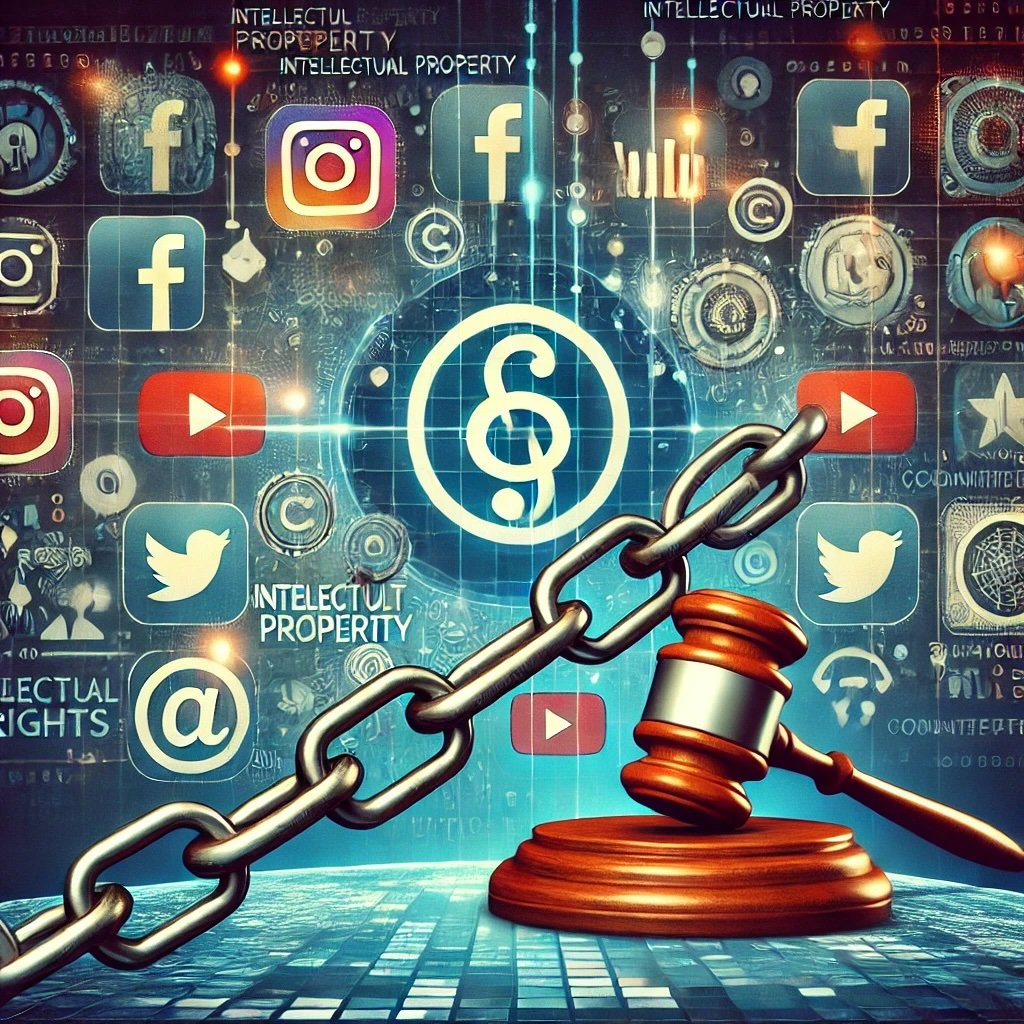



"Justice cannot be for one side alone, but must be for both"
Intellectual Property Rights in the Era of Social Media: Its Challenges and Reforms in India

Published on : 17/12/2024
View Count : (453)
Intellectual Property Rights in the Era of Social Media: Its Challenges and Reforms in India
Intellectual Property Rights in the Era of Social Media: Its Challenges and Reforms in India
Authored by: Ms. Sneha. P.V
Law Student
TNDALU
Mail: snehavelumani@gmail.com
Click here for copyrights policy
Introduction:
The emergence of social media in today’s world has been tremendous, encompassing users activities, practices, and behaviours through media by sharing information, knowledge, and opinions. Social media, social networks and social communities offer new forms of collaboration and communication. Toay, almost everyone is on some type of social media – teenagers on Instagram Reels and snapchat, influencers and small companies on Instagram and Facebook, or professionals on LinkedIn. When it comes to maximizing connection in any industry, social media is often the first option that comes to mind. A significant development in this realm is that social media platforms are transforming into business platforms through content creation and social media influencing. This shift underscores the necessity of understanding the dynamics of social media and intellectual property (IP) law to ensure the protection of copyright and intellectual property in an increasingly connected world. Technological advancements, including the rise of social media, have influenced patterns of IP infringement and enforcement, necessitating a redefinition of the law’s role as a means of technological control. Thus, the importance of IP law in the digital era extends beyond protecting copyright and patents. It also involves the adaptation and evolution of the law to address new challenges arising from technological developments. In India, social media has significantly transformed how content is created, shared, and consumed. This transformation requires a re-examination of intellectual property rights and their protection in the digital age to keep pace with these changes.
Intellectual Property- Relevance in Social Media :
Intellectual property (IP) encompassed original creations of the human intellect, including artistic, literary, technical, and scientific works. Intellectual property rights (IPR) refer to the legal rights granted to inventors and creators to protect their works for a specified period. The various forms of IPR include copyright, trademarks, patents, geographical indications, designs semiconductor integrated circuit layouts, and plant varieties.
However, the proliferation of social media platforms has introduced significant obstacled to IP protection. Concerns include copyright infringement, trademark infringement, and theft of trade secrets. Social media’s ease of sharing and dissemination can lead to the unauthorized use of legally protected works. Moreover, the rapid sharing and distribution of information can make it challenging to track and enforce IP rights. Identifying legal responsibility for infringement can become complicated when information is shared and reshared across multiple platforms. The fast- paced nature of social media also makes timely IP protection defficult.
IPR Challenges in Social media:
Reforms and initiatives:
Case Laws:
Living Media India Limited & Anr. v. Aabtak Channel.com (John Does) & Ors:
The Court restrained the defendants from using the plaintiff's name and mark 'AAJ TAK' because the defendants without the plaintiff's authorization used it on various social media platforms, including Twitter, Facebook and Instagram. The court also ordered those social media platforms to take down all the infringing posts, pages and videos referring to the plaintiff's mark, AAJ TAK.
Facebook Inc. v. Surinder Malik & Ors and Instagram LLC v. Surinder Malik & Ors:
The Delhi High Court held that, while online intermediaries, such as Facebook and Instagram, may not perform an active role in posting of the infringing contents on their platforms, being facilitators of the infringement, they are under an obligation to pull down such content as and when it is brought to their notice/ knowledge.
YouTube v. Myspace (2019):
The Bombay High Court directed Myspace to remove infringing content that violated YouTube's copyright rights. YouTube had complained that Myspace users were uploading copyrighted YouTube videos without permission.
Rayban v. Saurabh Baid (2020):
The Delhi High Court granted an injunction against Saurabh Baid for selling counterfeit Rayban products on social media platforms. The court held that Baid's actions infringed on Rayban's trademark rights and were likely to cause damage to Rayban's reputation.
Conclusion:
The advent of social media has transformed content creation, sharing, and consumption, posing significant Intellectual Property Rights (IPR) challenges in India. Rampant IPR infringement, including copyright, trademark, and patent violations, has become a major concern due to the ease of sharing and accessibility on social media platforms. To address these challenges, India needs to strengthen online IPR enforcement mechanisms, enhance awareness and education among social media users, update legal frameworks, and encourage social media platforms to adopt robust IPR policies and takedown procedures. India has taken steps in this direction, amending the Copyright Act, 1957, to include online copyright infringement, introducing the Information Technology (Intermediary Guidelines and Digital Media Ethics Code) Rules, 2021, and establishing the Intellectual Property Office of India. However, more needs to be done to strike a balance between IPR protection and innovation. Ongoing efforts are necessary to ensure India's IPR regime is robust, effective, and adaptable to the evolving digital landscape, fostering creativity, entrepreneurship, and economic growth while safeguarding intellectual property rights. Ultimately, a collaborative approach involving government, social media platforms, and stakeholders is crucial to navigate the complexities of IPR in the social media era and promote a culture of innovation and respect for intellectual property.
Reference:
1. https://www.ncbi.nlm.nih.gov/pmc/articles/PMC3217699/#ref1
3.Navigating the Digital Age: Challenges in Indian Intellectual Property Rights Law (linkedin.com)
8. https://www.globalipconvention.com/blog/intellectual-property-challenges-in-the-digital-age
11. https://byjus.com/free-ias-prep/national-ipr-policy-upsc-notes/
12. Neha Sunaria, Influencers on Social Media Platforms and IPR, 2 JUS CORPUS L.J. 511.
13. Sristi Choudhary, IP for Social Media Influencers and Context Creators, 2 JUS CORPUS L.J. 1166 .
14. Fatin Hamamah, The Impact of Social Media on Intellectual Property Law, Jurnal Penelitian Hukum Ekonomi Syariah Vol. 9 No. 1 (2024).
15. Mir, Aijaz & Rao, A. (2023). Intellectual Property Rights In The Age Of Social Media: Challenges And Strategies For India. Education And Society. 47. 8-13.
Journal Volume
You should always try to find volume and issue number for journal articles.


Nyayavimarsha
No. 74/81, Sunderraja nagar,
Subramaniyapuram, Trichy- 620020